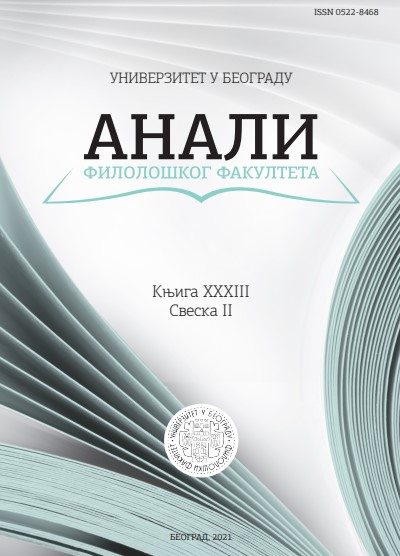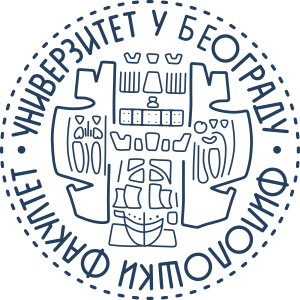Daoistički put ka jednostavnosti u romanu Pričanje Ursule Le Gvin
DOI:
https://doi.org/10.18485/analiff.2021.33.2.16Кључне речи:
kineska filozofija, naučna fantastika, dao, vu vei, transformacija ličnostiАпстракт
Iako veza Ursule Le Gvin sa kineskim filozofskim sistemom daoizma predstavlja opšte mesto u razmatranjima njenog dela, ona u njima nije dublje istražena. U nastojanju da osvetli mali deo tog složenog odnosa, ovaj rad istražuje motiv jednostavnosti, jednog od ključnih pojmova daoističke filozofije i temelja daoističke prakse, u poslednjem romanu hainskog ciklusa Pričanje (2000). Na nivou osmišljavanja likova, proces ostvarivanja jednostavnosti svoje uobličenje je dobio u razvojnom putu protagonistkinje romana. Istraživačko putovanje Sati Das, posmatrača Ekumena na planeti Aka, predstavlja put samospoznaje i ličnog preobražaja, ličnu potragu za jednostavnim. Ključne tačke na tom putu jesu upoznavanje drevnog, sada zabranjenog filozofsko-religijskog sistema Pričanja koji joj pruža novi model poimanja sveta i života, i složeni odnos sa antagonistom romana, službenikom totalitarnog sistema koji sada vlada planetom. Analiza pokazuje da postizanje jednostavnosti kod Sati Das dovodi do preobražaja lažnog (nesuštastvenog) sopstva u istinsko (suštastveno) sopstvo i otkriva duboku prožetost autorkinog shvatanja koncepta jednostavnosti daoističkom teorijom i praksom.
Downloads
Downloads
Објављено
Број часописа
Рубрика
Лиценца

Овај рад је под Creative Commons Aуторство-Дели под истим условима 4.0 Интернационална лиценца.
Authors who publish with this journal agree to the following terms:
- Authors are confirming that they are the authors of the submitting article, which will be published (print and online) in the journal Anali filološkog fakulteta by the Faculty of Philology, University of Belgrade (Faculty of Philology, Studentski trg 3, 11000 Belgrade, Serbia). Author’s name will be evident in the printed article in the journal. All decisions regarding layout and distribution of the work are in hands of the publisher.
- Authors guarantee that the work is their own original creation and does not infringe any statutory or common-law copyright or any proprietary right of any third party. In case of claims by third parties, authors commit their self to defend the interests of the publisher, and shall cover any potential costs.
- Authors retain copyright and grant the journal right of first publication with the work simultaneously licensed under a Creative Commons Attribution-ShareAlike 4.0 International License that allows others to share the work with an acknowledgement of the work's authorship and initial publication in this journal.
- Authors are able to enter into separate, additional contractual arrangements for the non-exclusive distribution of the journal's published version of the work (e.g., post it to an institutional repository or publish it in a book), with an acknowledgement of its initial publication in this journal.
- Authors are permitted and encouraged to post their work online (e.g., in institutional repositories or on their website) prior to and during the submission process, as it can lead to productive exchanges, as well as earlier and greater citation of published work.





